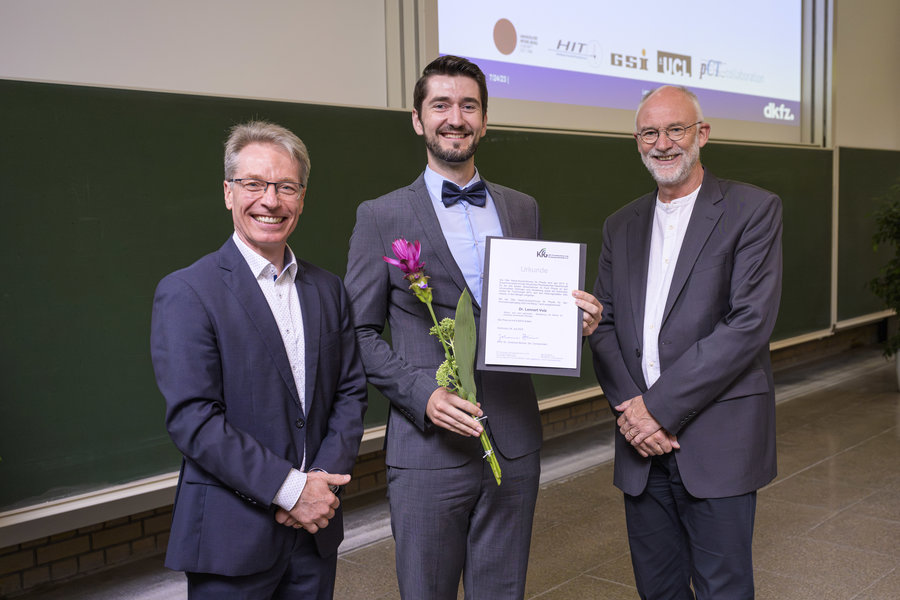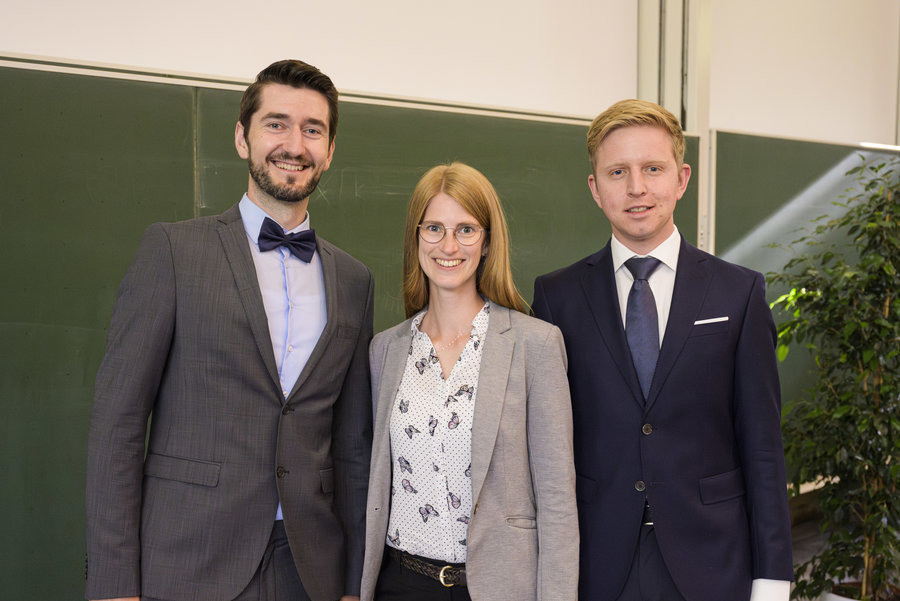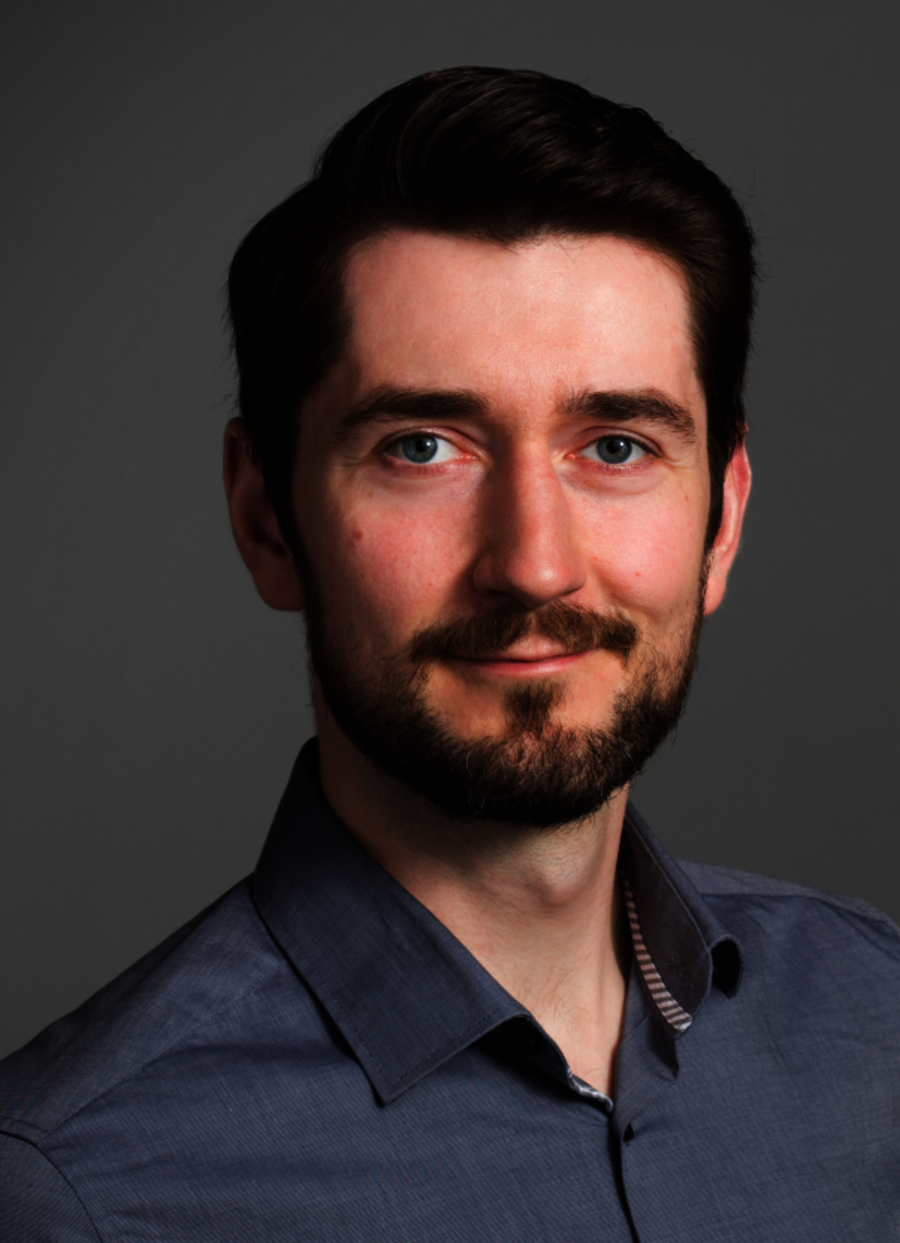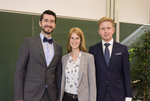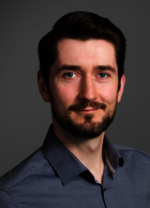Dr. Lennart Volz of GSI’s Biophysics Department honored with Otto Haxel Award
20.09.2023 |
Dr. Lennart Volz from the GSI Department of Biophysics has received the Otto Haxel Award for Physics. He received the prize for his dissertation on "Particle imaging for daily in-room image guidance in particle therapy". The award ceremony took place at the KFG summer event in Karlsruhe, organized by the "KIT Freundeskreis und Fördergesellschaft e.V.".
Dr. Lennart Volz studied physics at the Ruprecht Karls University of Heidelberg. For his master's thesis at the University of Heidelberg on the feasibility of using ion beams for the imaging of patients, he received the Christoph Schmelzer Award 2017. During his Masters, Dr. Lennart Volz also worked as a research associate at Massachusetts General Hospital, Harvard Medical School, in Boston. Until 2021 he was a postdoctoral researcher at the German Cancer Research Center DKFZ, Department of Biomedical Physics in Radiation Oncology, since then he is a postdoctoral researcher at the GSI Biophysics Department, his focus is on Medical Physics. Between 2021 and 2023 he also held a position as visiting researcher at the University College London in the Particle and Advanced Radiotherapy (PART) group.
In his dissertation, which received several honors and was supervised by Professor Joao Seco, Heidelberg, Dr. Lennart Volz focused on an improvement and on new methods of particle imaging for tumor therapy with ions. Treatment with ion beams is a highly effective and at the same time very sparing therapy method, but range uncertainty limits its applications. In current clinical practice, a major cause of range uncertainties resides in the conversion of the treatment planning x-ray CT to the patient specific relative stopping power (RSP) map. By measuring the energy loss of particles after traversing the patient, particle imaging enables a more direct reconstruction of the RSP, that is crucial for accurate treatment planning. By measuring the energy loss of particles after traversing the patient, particle imaging enables a more direct reconstruction of the RSP. In his thesis, Dr. Lennart Volz investigated different aspects towards the clinical implementation of particle imaging: First, he developed a theoretical description of the spatial resolution for different particle radiography algorithms in order to explain observed limitations and demonstrated a novel filtering technique for imaging with helium ions that can differentiate secondary particles from the relevant primary particles. With the new filtering method, he demonstrated experimental helium ion CTs with both high spatial resolution and high RSP accuracy. First results from an experimental comparison between particle and x-ray CT modalities for RSP prediction were presented.
Furthermore, Dr. Lennart Volz explored a novel technique for intra-treatment helium ion imaging based on a mixed helium/carbon beam with that relative range changes in the millimeter regime were observable. Finally, novel particle imaging detector designs were investigated. With the results of his dissertation, Dr. Lennart Volz was able to highlight the potential of particle imaging, and in particular helium ion imaging, for image guidance in particle therapy.
The Otto Haxel Prize was endowed by the entrepreneur and physicist Professor Dr. Hans-Joachim Langmann in memory of his doctoral supervisor. The nuclear physicist Professor Dr. Otto Haxel was scientific director of the Nuclear Research Center Karlsruhe from 1970 to 1975. The Otto Haxel Award for Physics has been awarded since 2017 in cooperation with the German Physical Society for the three best PhD theses in physics at the universities of Göttingen and Heidelberg and at KIT, Otto Haxel's three places of work. (BP)




